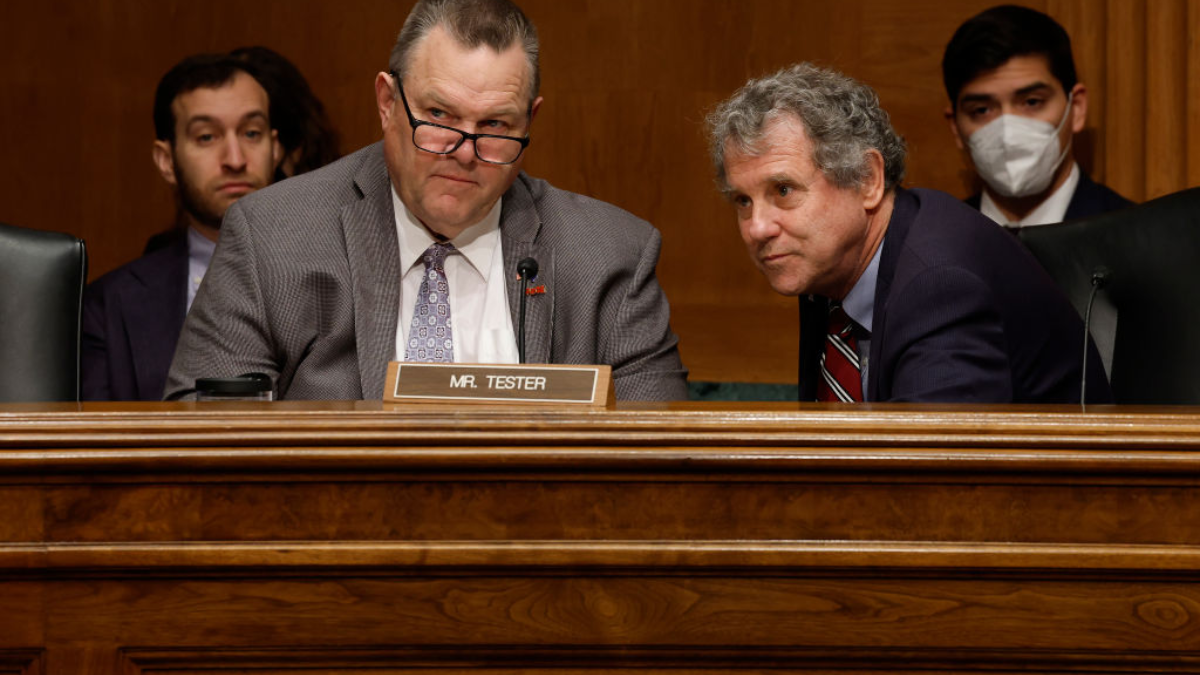Senator Brown has been elected as the new Democratic Whip, a key leadership position in the Senate. This victory marks a significant step in Brown’s political career and signals a shift in the party’s strategic direction. As the second-highest-ranking Democrat in the Senate, Brown will play a crucial role in shaping legislative priorities and ensuring party unity.
Brown’s Rise to Leadership
Brown’s journey to this leadership role has been marked by years of dedicated service and a reputation for bipartisan collaboration. Representing his state for multiple terms, he has built a strong rapport with colleagues across the political spectrum. His election as Democratic Whip reflects the trust and confidence his fellow lawmakers have in his ability to navigate the complexities of Senate negotiations.
A well-respected policymaker, Brown has been at the forefront of key legislative battles, including healthcare reform, economic policy, and social justice initiatives. His leadership style, characterized by a commitment to progressive values and practical governance, has made him a standout choice for the position.
Responsibilities as Democratic Whip
As the Democratic Whip, Brown’s primary responsibility will be to maintain party discipline and ensure that Democratic senators vote in line with the party’s agenda. This role requires extensive negotiation skills, as he will need to build consensus among lawmakers with diverse viewpoints.
Additionally, Brown will be responsible for rallying support for critical legislation, strategizing on policy initiatives, and coordinating with Senate leadership. His ability to unify the party will be vital in advancing legislative priorities and countering opposition efforts.
Impact on the Democratic Agenda
With Brown in this influential position, the Democratic Party is expected to push forward with an ambitious legislative agenda. Key issues likely to be prioritized under his leadership include:
- Economic Relief: Advocating for policies that support working families, job creation, and fair wages.
- Healthcare Expansion: Strengthening the Affordable Care Act and addressing prescription drug costs.
- Climate Change Initiatives: Promoting policies to reduce carbon emissions and transition to renewable energy sources.
- Voting Rights Protections: Ensuring fair and accessible elections nationwide.
His leadership will be instrumental in navigating these policy goals through a divided Senate, where bipartisan cooperation may be necessary for legislative success.
Reactions from Lawmakers
Brown’s election as Democratic Whip has been met with widespread approval from within the party. Senate Majority Leader expressed confidence in his ability to build consensus and effectively advocate for Democratic priorities.
Meanwhile, Republican senators have acknowledged his ability to engage in bipartisan discussions, even as they prepare for policy debates on key issues. Political analysts suggest that Brown’s leadership style will be a crucial factor in shaping legislative outcomes in the coming years.
Conclusion
Senator Brown’s election as Democratic Whip marks a pivotal moment in Senate leadership. His extensive experience, dedication to policy issues, and ability to unify colleagues position him as a strong leader for the Democratic Party. As he takes on this role, all eyes will be on how he navigates the challenges of a complex political landscape.
For further updates on legislative developments, visit U.S. Senate News.
Disclaimer – Our team has carefully fact-checked this article to make sure it’s accurate and free from any misinformation. We’re dedicated to keeping our content honest and reliable for our readers.








